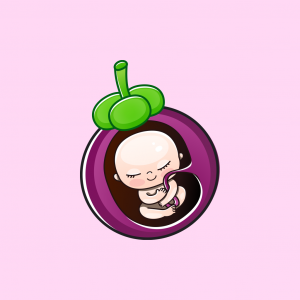Comprehensive Guide on the Name “Diana”

Diana
Meaning: Supplier Of Wellness / Gender: Girl / Pronunciation: Di-ah-nuh
Origin and Historical Background
Diana is a name of ancient origins, steeped in rich historical and mythological significance. The name is derived from Latin, where it means “divine” or “heavenly.” In Roman mythology, Diana was the goddess of the hunt, the moon, and nature, equivalent to the Greek goddess Artemis. She was revered as a protector of women and children, and her mythology encompasses themes of fertility, chastity, and childbirth. The ancient temple of Diana in Ephesus was one of the Seven Wonders of the Ancient World, highlighting the cultural importance of this deity.
Meaning and Cultural Significance
The name Diana, meaning “Supplier Of Wellness,” surpasses its literal definition by embodying qualities of health, abundance, and care. Diana, as a goddess, was seen as a protector and healer, which aligns beautifully with the name’s meaning. In contemporary times, the name has been associated with grace, strength, and nobility. The keywords health, fruitful, productive, abundant, and rich further enhance the image of a nurturing and prolific figure.
Famous Historical Figures with the Name Diana
1. Diana, Princess of Wales
- Historical Era: Late 20th Century
- Key Contributions: Humanitarian efforts, philanthropy, and advocacy for AIDS and landmine victims.
- Cultural Impact: Known as the “People’s Princess,” Diana captivated the world with her grace, compassion, and charitable work. Her legacy continues to influence humanitarian initiatives globally.
2. Diana Ross
- Historical Era: 20th and 21st Century
- Key Contributions: Pioneering contributions to the music industry as the lead singer of The Supremes and as a solo artist.
- Cultural Impact: Diana Ross is a cultural icon whose career has spanned over six decades, influencing numerous artists and contributing significantly to the Motown sound.
3. Diana, Roman Goddess
- Historical Era: Antiquity
- Key Contributions: Worshipped as the goddess of the hunt, the moon, and nature.
- Cultural Impact: The archetype of Diana has influenced literature, art, and psychology, embodying the strong, independent female figure.
Usage Over Time
The popularity of the name Diana has seen fluctuations over the centuries. In the United States, it saw a significant rise post-World War II, peaking during the 1960s to 1980s. The name experienced heightened popularity during the 1980s and 1990s, partially due to the global admiration for Diana, Princess of Wales. Data from the Social Security Administration (SSA) shows that Diana was among the top 100 names in those decades but has seen a gradual decline since then.
Pronunciation Guide
Diana is pronounced as Di-ah-nuh. The emphasis is on the first syllable “Di,” with a soft “ah” sound following, and it concludes with “nuh.”
Biblical Context
While the name Diana itself does not have a direct biblical reference, the values and qualities it stands for are often mirrored in biblical texts. The nurturing, protective, and healing attributes align with various feminine archetypes in the scriptures, such as Mary, the mother of Jesus, who is venerated for her motherhood and purity.
Additional Unique Information
Numerology
In numerology, Diana resonates with the number ‘9’. This number is often linked with universal love, spiritual enlightenment, and humanitarianism.
Variations
Some variations of Diana include Diane, Dianne, and Dianna.
Cultural Variants
In different cultures, the name might appear as Diane (French), Dijana (Croatian), and Divina (Italian, meaning ‘divine’).
Popularity Summary
According to the SSA, Diana was a popular name choice from the 1940s through the 1990s, often ranking within the top 100. Its popularity peaked in the mid-20th century but has gradually declined, no longer being in the top 100 in recent years. It retains a classic and enduring charm.
Conclusion
The name Diana, meaning “Supplier Of Wellness,” is rich in historical, cultural, and mythological significance. It conveys attributes of health, divine protection, and abundance, making it a timeless choice for expectant parents. With roots in both ancient mythology and modern cultural icons, Diana is a name that carries a legacy of grace, strength, and compassion.









